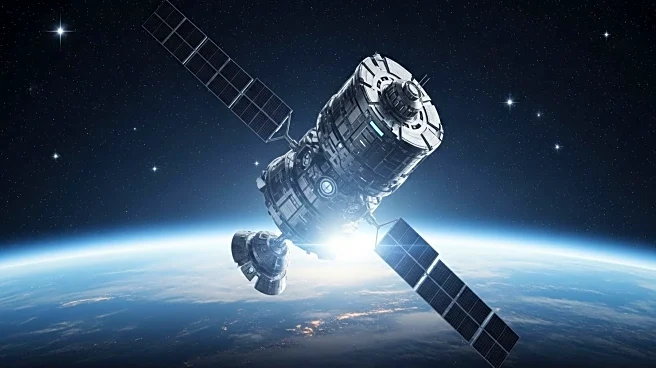What's Happening?
Brad King, CEO of Orbion Space Technology, participated in a podcast discussing the persistent high costs of satellites despite advancements in technology. King explained that while satellite costs have decreased, they remain expensive due to factors such as limited production, extensive reliability testing, and a multi-tiered supply chain. He compared the cost of satellites to luxury cars, noting that satellites are handbuilt and not produced on assembly lines, which contributes to their high price. King also highlighted the importance of reliability, as satellites cannot be retrieved once launched, necessitating rigorous testing. The discussion included insights into potential cost reduction strategies, such as vertical integration and supply chain consolidation.
Why It's Important?
The high cost of satellites has significant implications for the space industry, affecting both commercial and governmental stakeholders. As satellite technology becomes increasingly vital for communication, navigation, and data collection, reducing costs could expand access and foster innovation. Companies like SpaceX have demonstrated that vertical integration can lower costs, but this approach requires substantial capital investment. The discussion underscores the need for industry players to balance cost reduction with reliability, as failures can have severe financial and operational consequences. The ongoing efforts to streamline supply chains and improve testing standards could lead to more affordable satellite solutions, benefiting industries reliant on satellite technology.
What's Next?
The space industry may see further consolidation and vertical integration as companies strive to reduce costs. This could lead to a more competitive market with fewer suppliers, potentially driving innovation and efficiency. As the industry matures, stakeholders might develop new standards for reliability testing, reducing the risk of over-testing and associated costs. Companies may also explore insurance models to mitigate risks associated with lower-cost production methods. The evolution of the supply chain and testing practices will be crucial in determining the future affordability and accessibility of satellite technology.
Beyond the Headlines
The discussion raises ethical considerations regarding risk tolerance and reliability in satellite production. As companies push for lower costs, they must ensure that safety and reliability are not compromised, especially when satellites are used for critical applications. The industry's approach to risk management and cost reduction could influence public trust and regulatory standards. Additionally, the potential for industry consolidation may impact employment and innovation, as smaller suppliers face challenges competing with vertically integrated giants.











